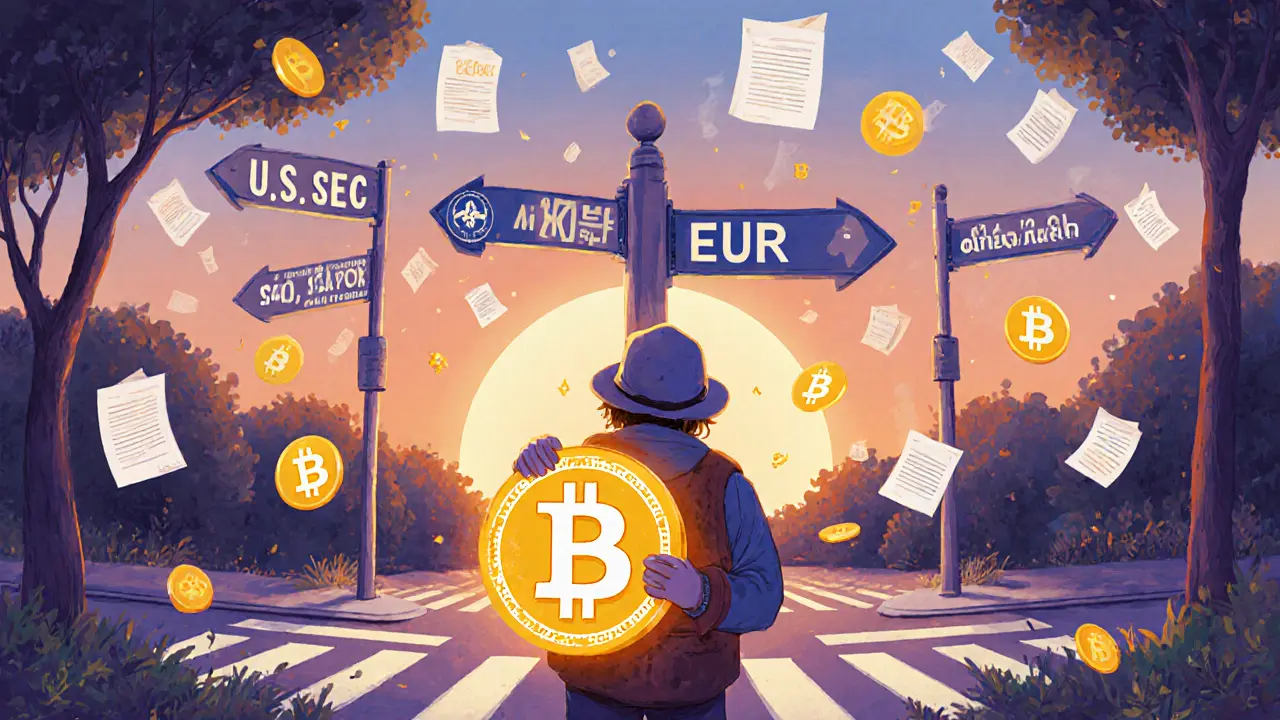Crypto Legal Updates: What’s Changing Globally and How It Affects You
When you hear crypto legal updates, official changes in how governments regulate digital assets, including trading, mining, and exchange operations. Also known as cryptocurrency regulation, these aren’t just paperwork—they directly impact whether you can buy, hold, or mine crypto where you live. This isn’t theoretical. Right now, countries are making real decisions that shut down exchanges, ban mining, or force platforms to get licensed—and you need to know what’s happening before it affects your wallet.
Take MiCA regulations, the European Union’s landmark crypto framework that requires all crypto businesses to be licensed and follow strict anti-fraud and transparency rules. Also known as Markets in Crypto-Assets Regulation, it’s already reshaping markets in places like Cyprus, a former crypto-friendly hub now forced to clean up its act under new licensing rules. In Nigeria, a full banking ban on crypto in 2021 turned into a full regulatory framework by 2025, giving legal footing to exchanges and protecting users. Meanwhile, Norway, a country powered by clean hydroelectric energy, proposed a ban on new crypto mining centers to save electricity for industries that create jobs. These aren’t random policies—they’re strategic moves based on energy use, economic value, and public safety.
And it’s not just about big economies. In Iran, major exchanges are blocked by government order, forcing traders to find workarounds—or risk losing access. These crypto exchange restrictions, government actions that prevent local users from accessing global platforms aren’t just about control. They’re about survival. When a country bans mining or shuts down exchanges, it doesn’t just change the rules—it changes who can participate and how.
What you’ll find below isn’t a list of headlines. It’s a collection of real cases—each one showing how a single law, policy, or court decision changed the game for everyday crypto users. You’ll see how low-cap tokens like CADAI and TOKEN 2049 are getting caught in the crosshairs of regulators who don’t tolerate empty hype. You’ll learn why Malta’s licensing process matters if you’re running a crypto business, and how Nigeria’s reversal from ban to regulation opened new doors. You’ll also spot the red flags in places like Iran and Nigeria where unlicensed exchanges are shutting down overnight.
These aren’t distant news stories. They’re the invisible rules that determine if your next trade is legal, if your wallet stays accessible, or if your mining rig gets shut down next month. The crypto world moves fast—but the laws are catching up faster. Know what’s changing. Know where you stand. What’s next isn’t guesswork—it’s documented, tracked, and laid out here for you to act on.
Staying Informed About Changing Crypto Regulations Worldwide
Crypto regulations are changing fast in 2025. From U.S. policy shifts to EU licensing rules and Asian crackdowns, staying informed protects your assets. Know the laws where you live - and where you trade.
